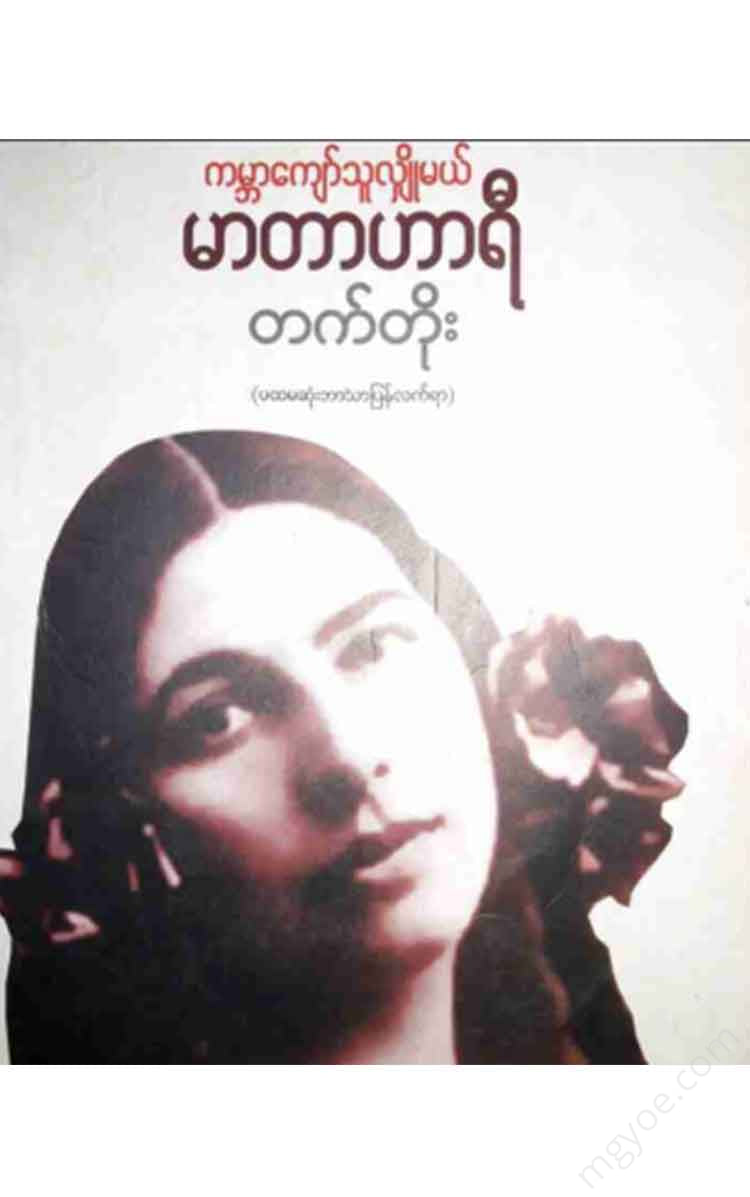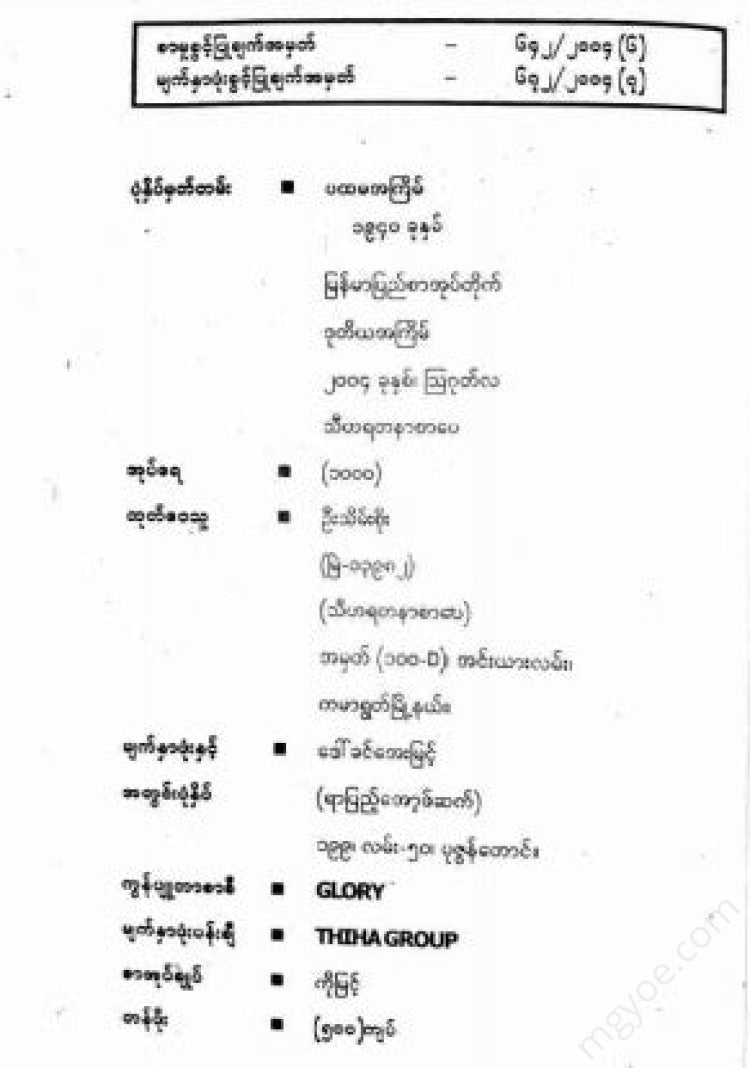Other Websites
Tattoo - World-famous spy Mata Hari
Tattoo - World-famous spy Mata Hari
Couldn't load pickup availability
:: Click on Buy it now to download the ebook . After placing your free order, the download link will be sent to the reader's email address used to log in to the mgyoe.com website.
:: The Ebook (Free) books on mgyoe.com are books that have been circulating on the internet for a long time.
:: It is just a compilation so that readers can easily find it when they want to read it.
:: If reprinted by libraries, the download links for these e-books will be removed.
------------------------------------
Chapter (1 )
Mata Hari, who was famous for her difficult work of espionage during the last World War, using a million different types of weapons and equipment, has deceived her biographers. No writer has yet been able to write a coherent account of her life. For she flew from one flower to another, flying through Vetiver, Cairo, Paris, Madras, and London like a butterfly. The biographer finds a note that she is in London one day, and then finds a note that she is in Paris the next. And so it is that anyone who tries to write a coherent account of her life is like a child chasing a butterfly that is fluttering around.
Georges Surrey first met Mata Hari at a hotel on Rue de la Barthelemy in Paris, France. The hotelier, Parole, had a strange girl playing for the guests who came to his hotel. The girl's name was Longsorrel. (This Longsorrel was the same Maya the Mata Hari who later became famous in spy history.)
Porrill's hotel was unlike any other hotel, more like a club. The only people who came to eat and enjoy themselves were artists and writers, and they were the only ones who came every day, so no new people, no strangers, no tourists came.
Hotelier Paul Riel struck a glass bell one night in November 1910. The courage of the glass bell was such that it made a sharp sound that it could overcome the tumultuous noise. The meaning of striking the glass bell was none other than that Paul Riel wanted to tell the people in the hotel something. The sharp sound of the glass bell rose above the noisy sounds and, like water extinguishing a fire, made it so quiet that even a needle could be heard.
Paul, after the third time, addressed the audience in this way.
"Friends, it's been a while since I've seen you dance, almost three weeks."
After saying this, he paused, waiting to see how the audience would respond. The audience was silent and silent, so he continued.
“I went to Marseilles last Saturday.” Hearing this, the audience burst out laughing, as if they were laughing at the whole mess. This expression had a humorous meaning. The audience of the hotel knew without being told that Paul went to Marseilles. Paul had a young wife in Marseilles. His job and his wife were in Paris, so he could not stay in Marseilles all the time. When his job was demanding and his wife was tiring, he would go to Marseilles to relax. His wife kept the book at the hotel, and Paul, who wanted freedom, found everything very cramped. Paul used to go to Marseilles for a week a month to escape from this cramped and oppressive society.
When the laughter died down, Penny continued.
"When I arrived in Marseille, I went to a hotel and met a dancer there."
Paril paused here again. This time, not because he wanted to hear from the audience, but because he was in a state of elation and delight, he closed his eyes and stretched his arms out in front of him for a minute.
"I went to the girl's guardian, and when I asked for a loan, he said it was too expensive. I said it was too expensive, so I didn't rent it. But the girl's eyes were different. She just looked at me and her friend talking. I couldn't tell what had happened. She wanted to borrow it so much, so she had to come with a very expensive price. Well... here she is."
In this way, Paul speaks in a very eloquent manner, and after speaking, Paul goes to the band and has them play.
As soon as the instruments began, the curtain moved aside, revealing a young girl sitting on a throne on the stage. At first glance, it didn't seem like much. I knew how Paul's air was, and no matter how much I tried to explain it, I didn't think it was anything special.
The lower part of the dancer is wearing long Turkish trousers. Above the waist, it seems that she is wearing a garment that is alternately bright and dull. It is as if she is wearing a piece of black and white. She stands up and removes the garment from her body like a mala tied around her neck, and the audience knows that what is left is none other than earth. The skin of the snake is shining under the light. The dancer holds the snake's tail, which has been released from her body, by the neck, and facing the audience, she touches and kisses the snake's tongue, which is flashing in and out like lightning. The dance is also an oriental dance. It is a Brahmin dance.
Masuria was a painter. Seeing the snake dance around and around, he became particularly interested in the full-body images he was painting, as he could see the body before his eyes.
One of the unique features of the dancer is that she does not dance in a competitive manner like other dancers, but her dance has a meaning. Looking at her figure and her face, you can see that she has a desire to make fun of the world. Not only does she have a desire, but she is actually making fun of it. She looks at the customs of the human beings who are just enjoying themselves with her lips pursed in ignorance. She looks at it with a mocking face. She dances gently and politely while looking at it.
Standing in the bright light of the big flashlights, the young dancer had a beauty that people could only dream of. Her dance was beautiful, but not too beautiful. She was beautiful, but not too beautiful, but she had a special courage that could not be expressed in words,
This extraordinary courage, which made men fall in love with her, was especially evident on that night in November 1910, when she was dancing at Paul's hotel. No one knew what had happened to her, for she was surrounded by a horse called Man Myin. The young men who followed her were soon blinded and left to die. Her life was a life of ups and downs.
After the first round, the clapping of hands and the beating of drums were heard. The sound of glasses clinking, the slapping of hands on the table, the meowing of cats, all these sounds were heard. It was important to remember that the audience was not an ordinary audience. It was an audience of writers and artists. Writers and artists were just crazy creatures.
Paul said that he would not dance again that night, and that he would dance again, and that he would dance again, and that he would dance again.
"Oh, nine"
The voices were heard and then they disappeared. But the fact that he was still dancing was so captivating. If I saw him again, I would be so young that I would be so enamored.
Some quick-witted people ran onto the stage, pulled Paul away, and pulled the curtain open. When the curtain opened, they could not see the lion. He and his snake had disappeared. The audience looked around, wondering where Paul was. They asked, "Where did the dancer disappear to?" But Paul kept on dancing and playing tricks.
He felt that she was different from other dancers. Other dancers. When the audience liked her like this, they would dance with great enthusiasm, as if they were waiting for the black ball that had not yet been played in the other room. They would talk to the male audience who had gathered before them, and after drinking a lot of their silk and flowers, they would leave. This young dancer was strange. As if she had acquired the ability to disappear, she could not find her even before Paul said that the party was over. That strangeness fascinated him.
"Tell me, my man. Where does this girl live? Which door did she leave from?"
"I'm sorry," they asked one by one, but Paul didn't answer, just kept mumbling.
Don't think that you will go back disappointed because you can't ask where the little girl lives. Writers and artists are more intelligent than anyone else...
"Shut up, Paul. How did you meet this girl? You don't need her, my dear. I think you're already addicted to her."
They asked Paul about how he met and brought him to Paris, and how he was motivated to do so.
Paulie, the hotel owner, was very talkative. The writer and the punchline teacher Nokpoe also asked Paulie about Sonral, and Paulie told him how he had met Sonral.
"So, when I got to Marseille, I came across a small hotel on the outskirts of the city. The hotel was dirty, don't tell me, the people in the hotel looked like sailors, with big earrings in their ears and pirates, white, black, and yellow. They were all different. There was no band in the hotel, but there was an old piano in the next room. The piano player was also a bit of a slob. Soon after taking the medicine, Senrel came in through the door and sat on the ground, his big snake around him. As you can see, the big snake was dancing on its own. The guys at the hotel didn't pay attention to him. They were all traveling around the world by ship, so they didn't watch this kind of dance, so what's so strange? Senrel wasn't pretty, Doc. But there was one thing. He had a little something to say. It's true, sir..
I thought he was strange, so I went inside the hotel and asked him. The hotel owner took him to where he was. He said he had a child and asked where he came from. The hotel owner said he had come on a ship from Pondicherry, India. Whose child was this? He shook his head at the hotel owner. It meant he couldn’t say anything. I asked him if he was going to Paris and he nodded. He was a good talker. But he didn’t say anything. He didn’t say anything because he looked at me strangely. He had a certain feeling that he couldn’t help but rent it. So I had to rent it for a large sum. I wanted my friends to see it.”



